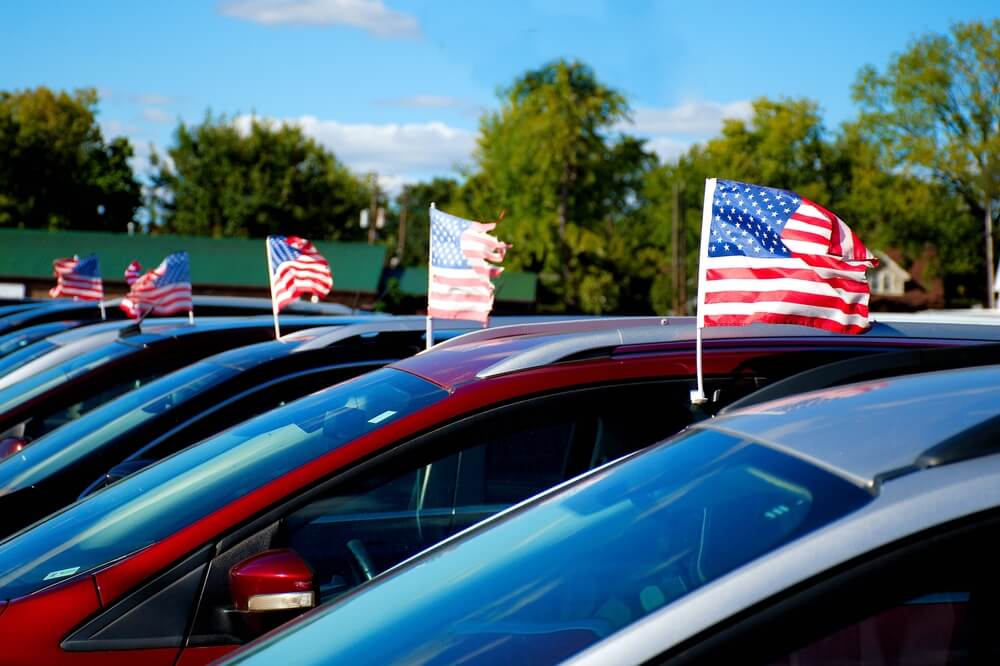
If you are not redirected within 30 seconds, please click here to continue.
Samedi: 10h – 16h HAE

If you are not redirected within 30 seconds, please click here to continue.
If you are not redirected within 30 seconds, please click here to continue.
Does your auto insurance provider care if you carpool regularly?

Hitching a ride with your colleagues is a surefire way to save money while making it to the office on time. But when it comes to your auto insurance provider, carpooling is a bit of a gray zone.
Whenever you apply for auto insurance, you need to tell your provider how you use your vehicle. If you’re using your personal vehicle to transport passengers for business, for instance, like an Uber driver, then you will need commercial insurance coverage.
How about if you’re just driving a group of coworkers, family, or friends on a semi-regular basis? Is that any different from being an Uber driver? And how do you bring up regular carpooling with your auto insurance provider?
Most importantly, how does regular carpooling affect your rate?
Carpooling versus ridesharing: how your car insurance responds
While rideshare drivers, bus drivers, and carpool drivers all ferry passengers to a predetermined destination, auto insurance companies view them differently. Bus drivers are covered under a commercial insurance plan through their transit service. And rideshare drivers are also, at least in Ontario, seen as commercial vehicle operators, and require that type of insurance when the rideshare app is turned on. The Financial Services Regulatory Authority of Ontario (FSRA), which regulates auto insurance prices in the province, has a list of approved ridesharing insurance policies.
“Any type of ride-sharing, like Uber or Lyft, that is for-profit is a commercial risk,” says Rob de Pruis, national director of consumer and industry relations for the Insurance Bureau of Canada. “You need to have the appropriate insurance and disclose that to your insurance company because that is a different risk than just driving back and forth to work with a coworker.”
By contrast, carpooling is simply the act of driving passengers somewhere, and your base insurance policy already accounts for that. “Generally speaking, your mandatory auto insurance coverage would provide coverage for a carpooling arrangement,” de Pruis says. The critical point is that you cannot receive a profit for your services. (Thankfully, road Timbits don’t count.)
Do you need to tell your auto insurance provider about regular carpooling?
De Pruis says insurance companies are pretty sympathetic to folks looking to save money by carpooling, and don’t mind it so long as they understand what you’re using your vehicle for.
“If you are involved in a carpooling arrangement, you have to make sure you are disclosing information on the use of your vehicle to your insurance company,” he says.
Your insurance provider doesn’t necessarily need to know whether you’re carpooling on a regular basis, de Pruis says, but it does want to know how far you’re driving on a regular basis to and from work, for instance. And if your carpooling arrangement crosses the line into earning a profit from driving passengers, then you definitely need to tell your insurance provider, or risk losing coverage in the event of a crash.
Carpooling with plenty of passengers might require additional liability coverage
One factor that might be worth considering for anyone carpooling with a lot of people at once — perhaps a construction crew, or a youth hockey team heading to early-morning practice — is buying increased liability coverage.
De Pruis says carrying any more than one passenger could increase a driver’s risk of paying out injury claims in a crash. “If you’re involved in an at-fault accident and your passengers are injured, they could actually be pursuing an injury claim against you as the driver,” he explains. “That’s called a bodily injury claim or a passenger hazard-type claim.”
These types of claims are made by victims who suffer significant injuries and need major financial assistance for recovery, as well as replacing any lost income. Unfortunately for the driver in this situation, these claims are usually above and beyond the mandatory accident benefits available through a private passenger insurance policy, which tend to be $200,000.
BrokerLink, a subsidiary of Intact Financial, recommends at least $2 million worth of liability coverage for drivers who regularly carry high numbers of passengers, even if it’s just to give some friends a lift.
Getting the proper car insurance as a carpooler
Whether you occasionally give your mom a lift to work or drive your colleagues to a job site every single day, you should check in with your insurance provider to ensure you’re properly covered. De Pruis says any regular carpoolers have plenty of insurance companies vying for your business.
Each will charge you differently, too, which is why it’s crucial to compare auto insurance rates from a variety of providers.
“They all have different operating expenses and claims costs, different exposures, and look at risks differently,” de Pruis says. “So we always encourage everyone to shop around.”
Interested in creating content with Rates.ca? Reach us at email@rates.ca.
Get money-saving tips in your inbox.
Stay on top of personal finance tips from our money experts!










